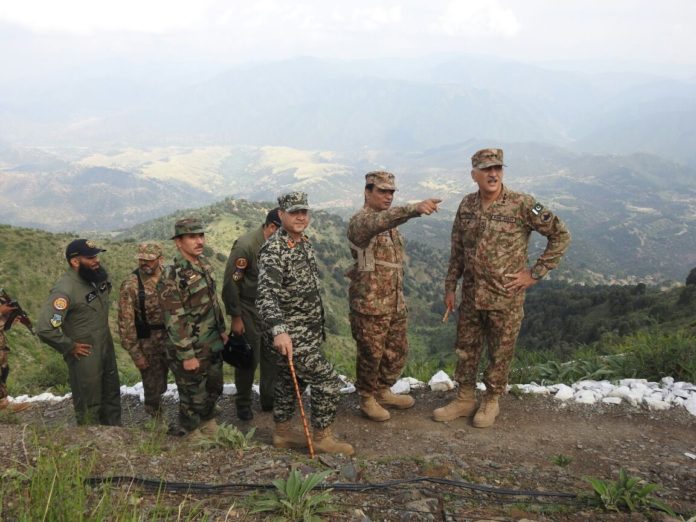Military Operation Khyber IV has been started to dismantle “safe heavens” of terrorists, it is continuation of Operation Zarb-e-Azb and Raddul Fasaad. A large part of Khyber Valley has already been cleared and more than 20 terrorists have been killed so far. Even as fierce battle is going on in different parts of Khyber Valley, the Armed Forces have successfully captured the highest mountains from the terrorists.
The army launched a major ground offensive in one of the last two remaining pockets in the tribal areas bordering Afghanistan as part of Pakistan’s ongoing efforts to establish writ of the State writ and also deny ISIS any space. The operation, codenamed Khyber-4 has been initiated in Rajgal Valley, considered to be the most difficult terrain in the entire Federal Administered Tribal Areas (Fata).
Maj Gen Asif Ghafoor, Director General Inter-Services Public Relations (ISPR) said that this operation was part of the ongoing anti-terror campaign under Radd-ul-Fasaad. He said Rajgal Valley was the most difficult terrain for operation as it spread over an area of 256 square kilometres with eight passes and heights ranging from 12,000 to 14,000 above sea level. A full division of the army, including artillery and aviation, backed by Pakistan Air Force is taking part in the operation. This Operation is critical since it could provide a key route to ISIS terrorists operating from Afghanistan to establish their foothold in Pakistan. Moreover, the banned Tehreek-e-Taliban Pakistan (TTP) was also operating from Rajgal.
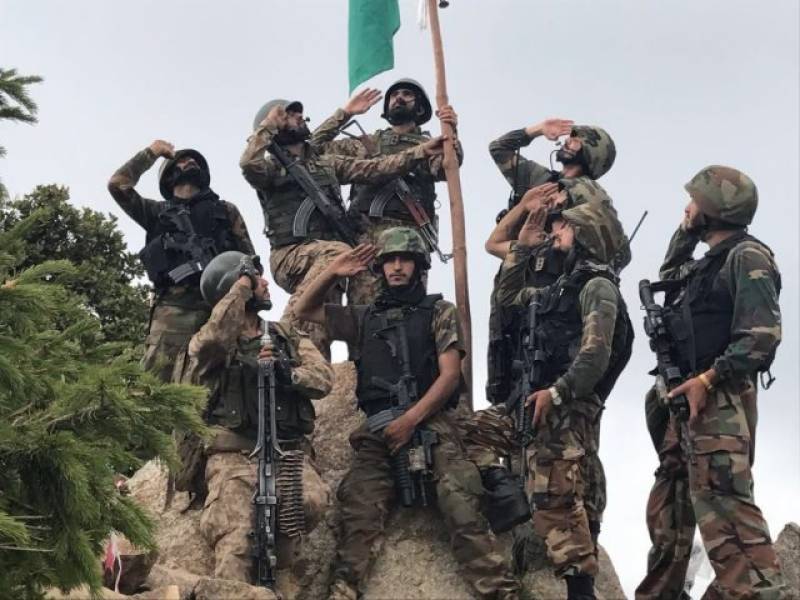
The Pakistan Army has now captured a critical high peak, Burkh Muhammad Kandao during Khyber IV Operation along the Pak-Afghan border, a major success for the Pakistan Army as it has cleared the area and forces have established posts on 12,000 feet High mountain. The mountains peak and case was used as storage and observation point by the terrorists. Numerous terrorists were killed and many fled to Afghanistan as their hideouts were destroyed during the operation. Huge cache of explosives, mines and weapons were recovered from the terrorists. Special Services Group (SSG) also took part in the operation.
The below mentioned factors are keys to success in the war against terrorism. The Inter-Services Public Relations (ISPR) said that 110 square kilometres area in Rajgal valley has been cleared by the Pak armed forces as Operation Khyber-4 continues. It is achieved because of better intelligence system (human, digitalization). Better Counterterrorism Strategies of our armed forces have merged as a “decisive factor”. There are reports of ISIS presence in Khyber Valley and Operation Khyber IV was started to dismantle militant networks aimed towards economic terrorism/ fundraising.
In the modern or hybrid warfare “Sleeper Cells” play a very destructive role due to which Operation Zarb-e-Azb and Raddul Fasaad were started and Operation Khyber IV is a continuation of this to marginalize/elimination role of sleeper cells.
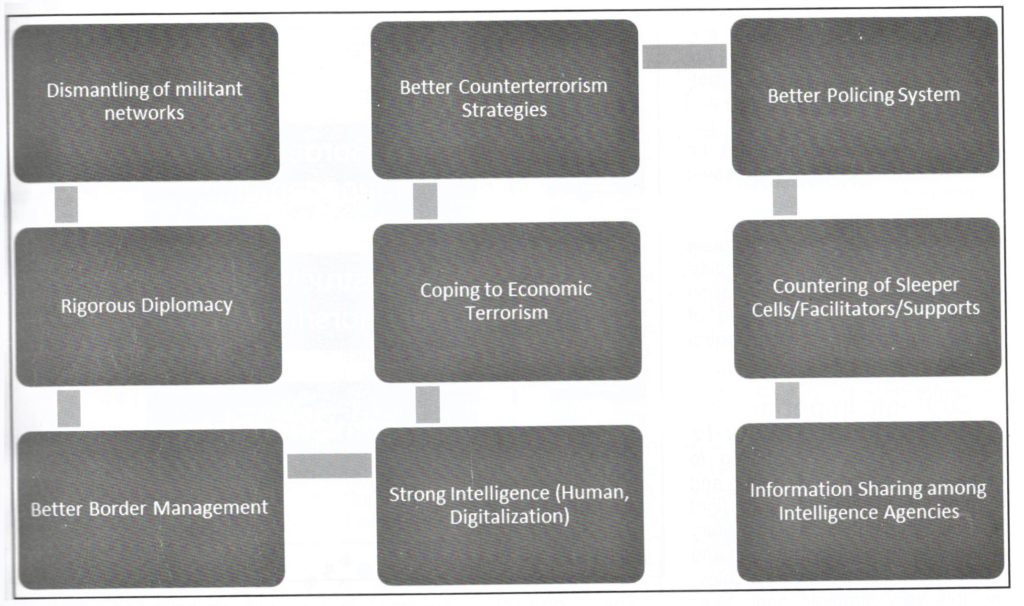
Better Border Management was totally missing from our counterterrorism strategies in the past but thanks to the government of Pakistan and the Armed Forces it has now become a crucial part of collective resolve in the war against terrorism. Fencing has already been started along the border of Afghanistan where infiltration of terrorists and economic terrorism has been supported in Pakistan. An accord with better border management has been finalized with Iran which is now paying dividends in terms of better security parameters.
The theater of modern war is very complicated and complex which requires proper response at every forum within and outside the country. The government of Pakistan and armed forces are on the same page to also follow diplomatic channels to achieve peace and harmony by engaging Afghanistan, India and Iran. Better Policing System is a must for achieving the desired goals in the going war against terrorism because of new waves of “urban terrorism” in the major cities of Pakistan.
Factors of Success
In the ongoing Operation Khyber IV many terrorist hideouts were dismantled” and a significant number of improvised explosive devices (IEDs) were neutralised. Pakistan Army Engineers Counter IED teams detected, recovered and neutralised IEDs laid by terrorists. The Forces [are] searching cleared areas of Wucha Wana, Bagh, Ziarat Sereh and Pak Darra.
The ISPR also added that recently more than 50 suspects were apprehended from Islamabad, Rawalpindi & Lahore. The apprehended individuals are suspected of providing safe havens and harbouring to terrorists in the suburbs of Lahore / Islamabad. Punjab Rangers, along with the Counter-Terrorism Department Punjab and police also conducted operations against terrorists and their facilitators in the province. The ISPR also informed that the army cleared two strongholds of terrorists in the Rajgal valley during the ongoing Operation Khyber-IV. The Spinkai Top dominating Saprai Pass and Star Kille have been secured and are effectively dominated by the Pakistan Army. The army is targeting terrorist hideouts by artillery and army aviation has dismantled terrorists’ networks, terrorist are on the run. Khyber-IV is progressing as planned.
Operation Khyber IV has now entered into its 2nd phase because the army has successfully completed the first phase of Operation Khyber-IV in the Rajgal area of Khyber Agency after gaining control of a key mountain top.
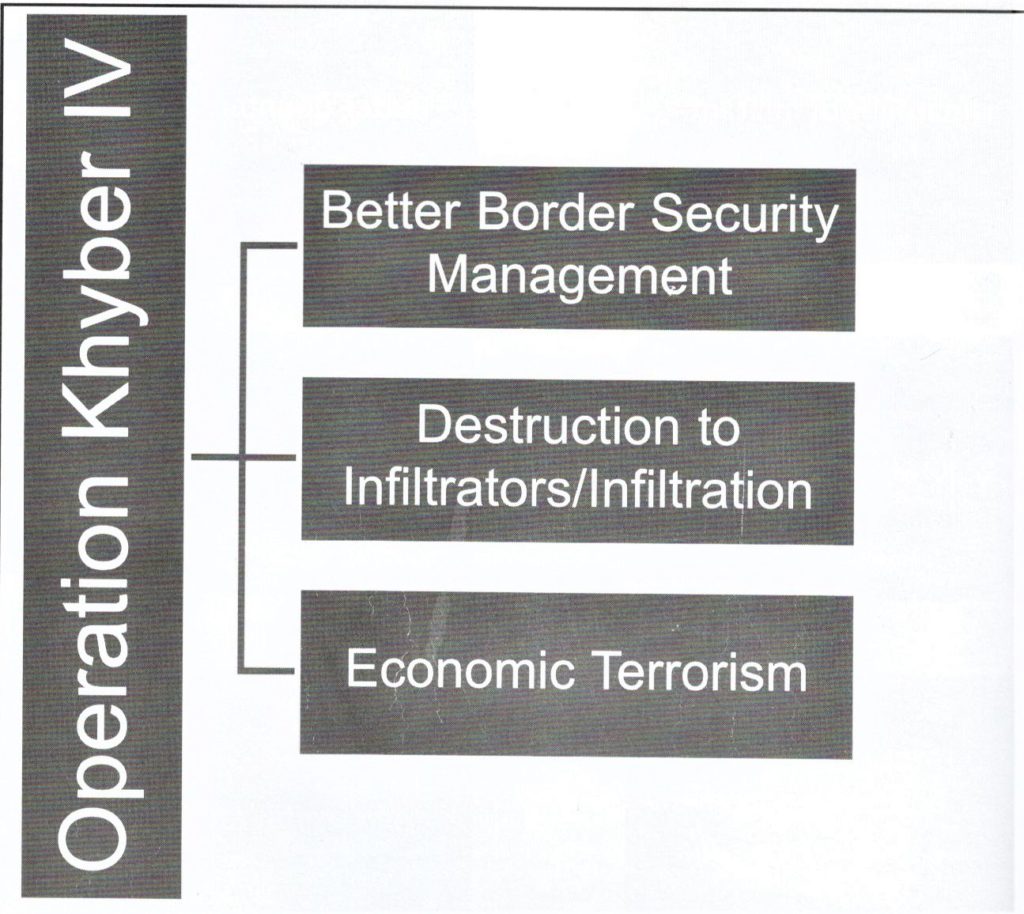
Strategic Importance of Operation Khyber-IV
Pakistan has been striving to achieve of peace, prosperity and harmony in the country in its fight against terrorism. A series of military operations have been launched and successfully completed for achieving this very strategic goal. Most recently Pakistan’s Army started Operation Khyber-IV in the Rajgal area which has strategic importance as given below:-
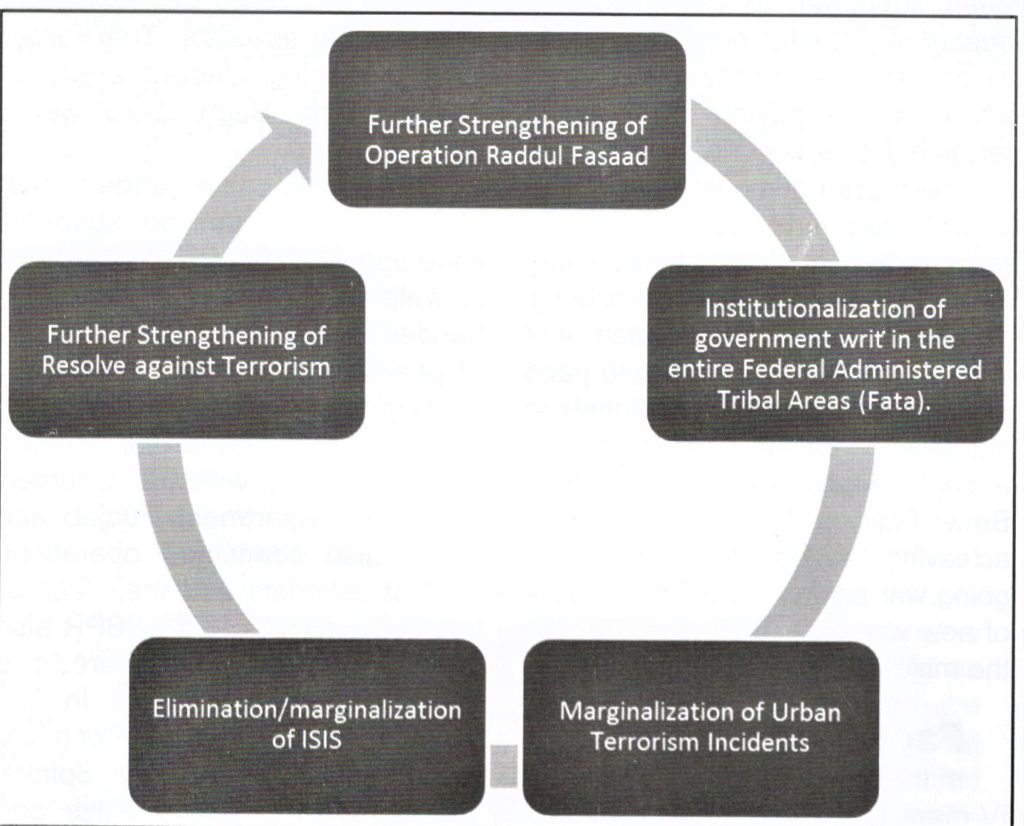
The ongoing successful Operation Khyber-IV shows our resolve against terrorists and terrorism. With the capture of a strategic mountaintop by the military, militants have been denied a position from which they can detect, avoid or attack Pakistani security forces. Once again, the spirit of martyrdom, bravery and determination of Pakistani soldiers is moving the country closer towards another important strategic victory in the long fight against militancy.
The Afghan response, denouncing Operation Khyber IV and railing against Pakistan for perceived inaction against Afghan-centric militants, is perplexing. Pakistan is securing its own terrain against militants. Khyber IV also aims at marginalization of ISIS to operate in the region. Pakistan must not allow the unreasonableness of the Afghan government to slow down or prevent operations that are important to this country’s security. On its part, Pakistan shared the information about Operation Khyber IV with Afghan Forces as well as Resolute Support Mission, and ODRP.
Overall Security Situation
Operation Khyber-IV will hopefully establish the state’s firm writ over the region. As Operation Khyber IV proceeds, the other aspects of long-term stability in Fata ought to be addressed too. Political chaos remained high in the country due to Panama Leaks. At least 26 persons, including nine Policemen were killed and another 56 were injured in a suicide blast near the Arfa Karim IT Tower on Ferozepur Road, Lahore on July 24.
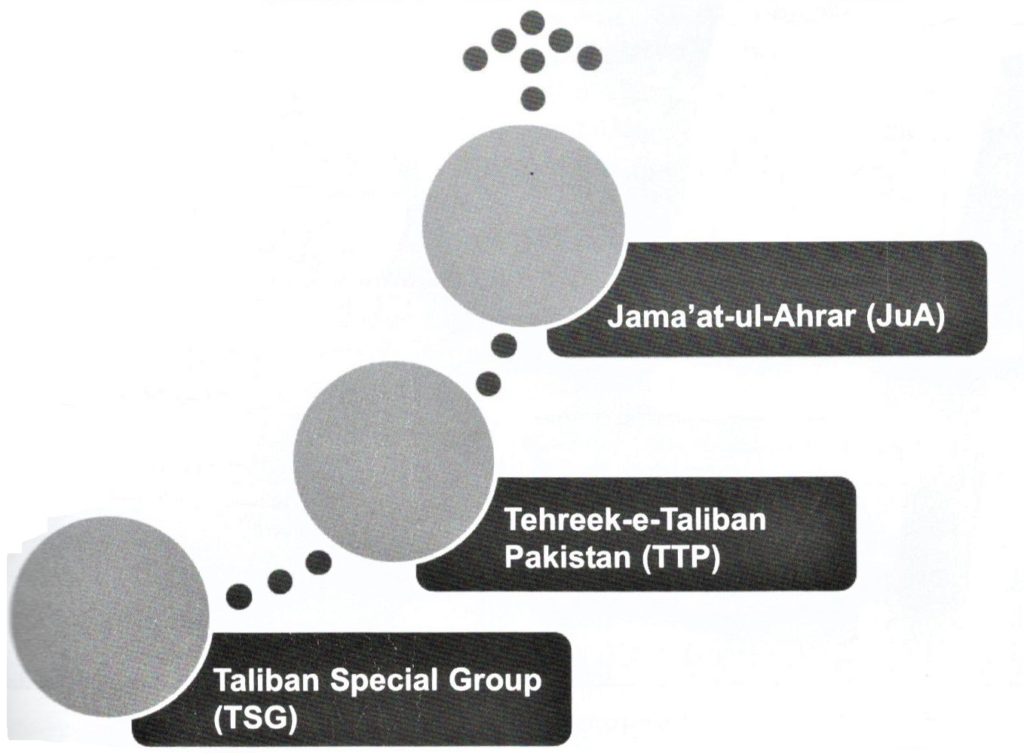
Rise of Urban Terrorism
Urban terrorism is on the rise in the country due to many reasons. The following new players of destruction have been identified:- Tehreek-e-Taliban Pakistan (TTP) claimed responsibility for the attack stating that it had been carried out by its member, Fida Hussain Sawati. Law enforcement agencies identified a new terrorist network, Taliban Special Group (TSG), an offshoot of TTP, as being responsible for the suicidal attack. It was the first assault by TSG, which reportedly includes some highly trained suicide attackers.
This was the third suicide attack targeting Lahore in 2017. Six people, including four Army soldiers and an off-duty Air Force airman lost their lives after a suicide bomber targeted a census team in the Bedian Road area of Lahore on April 5, 2017. At least 19 others were injured in the attack. TTP claimed responsibility.
On February 13, 2017 at least 14 persons were killed and 85 injured when a suicide bomber struck outside the Punjab Assembly on Mall Road, Lahore, during a protest. Six Police officials were among the dead, including two senior officers: Deputy Inspector General (DIG), Traffic, Lahore, Captain (Retd.) Ahmad Mobin and Senior Superintendent of Police (SSP), Operations, Zahid Gondal of Punjab Police. The Jama’at-ul-Ahrar (JuA) faction of TTP claimed responsibility.
According to the Institute for Conflict Management (2017), Punjab has registered a 33.83 percent decrease in overall fatalities, from 198 persons killed in the first seven months of 2016, down to 131 such fatalities in the corresponding period of 2017. Fatalities in the civilian and terrorist categories saw 64.63 and 19.79 per cent declines. But the rise in urban terrorism should serve as a wake call to all the law enforcement agencies, intelligence services and the police.
Suggestions
(1) Close liaison with the Provincial Intelligence Centre of the Punjab Home Department and local offices of Rangers, MI, IB and ISI.
(2) Provincial Apex Committee must play a proactive role in the fight against terrorism especially urban terrorism.
(3) Further strengthening of Intelligence-based Operations (IBOs) against terrorists. In this regard complete overhauling of “human intelligence” is the need of the hour.
(4) There is dire need to have digitalization in the mechanism of intelligence services/ agencies.
(5) Strategic utility of drone technologies must be initiated.
(6) Complete institutionalization of the Anti-Terrorism Act.
(7) Complete institutionalization of the National Action Plan at the earliest.
(8) Overhauling to judicial system.
(9) Security experts have been dismayed at the failure to follow Standard Operating Procedure (SOP) by Provincial police units across Punjab, Sindh, Khyber Pakhtunkhwa and Balochistan resulting in tragic incidents. There is an urgent need of rectifying policing system in the country.
(10) By targeting major cities in the country the terrorists have demonstrated that they are far from being eliminated, so there is an urgent need to cope the menace of sleeper cells.
(11) There is a great scope of community based policing system.
(12) Knowledge of security measures must be included in the syllabus.


